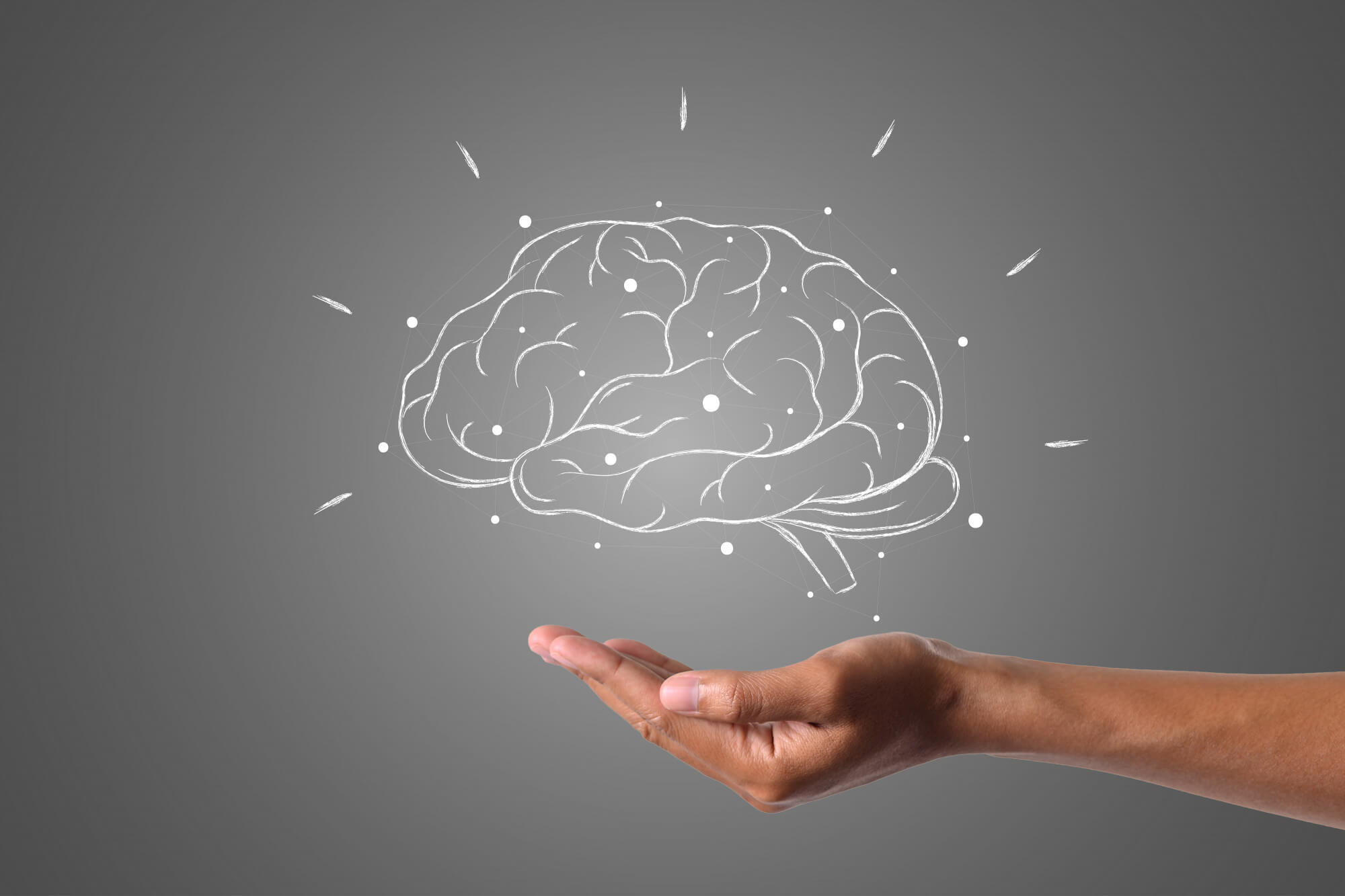Epigenetic changes are one of the causes of aging
A study shows that by manipulating the epigenome, aging can be promoted and reversed

Sandy Millar
According to the theory about aging information, our genome is comparable to biological hardware, while the epigenome is software - and aging is a software problem that can be solved by restarting from a backup copy.
An international study involving 13 years of research shows for the first time that a deterioration in the way DNA is organized and regulated — known as epigenetics — can drive an organism's aging independently of changes in the genetic code itself.
The researchers triggered accelerated aging in mice by causing DNA breaks that trigger a cellular repair process and changes in DNA organization, i.e. epigenetic changes. The authors proved that the increased burden of DNA reorganization and the resulting loss of epigenetic information, and not the changes in the DNA sequence, caused mice to age faster.
Using gene therapy, they then introduced factors into the mice that partially restored the integrity of the epigenome and brought the organs and tissues into a youthful state so that aging “went forward and backward at will.”
“We believe our study is the first to identify epigenetic changes as the primary cause of aging in mammals,” said the study's lead author David Sinclair, professor of genetics at Harvard Medical School's Blavatnik Institute and co-director of the Paul F. Glenn Center for Biology of Aging Research.
The epigenetic restart resulted in improved aging markers in the kidneys, muscles and eyes. Even though the study is of great importance, other scientists in the field warn that without further experimentation, it is still too early to draw big conclusions about the nature of aging and our ability to reverse it.
Leonard Guarente, American biologist, Novartis Professor of Biology and Director of the Paul F. Glenn Center for Biology of Aging Research at MIT (Massachusetts Institute of Technology), Boston, has the following to say:
“Studies on yeast and mammalian cells over the past 25 years have shown that DNA double-strand breaks cause a redistribution of epigenetic regulators that affect histone acetylation and methylation across the genome, which could be a cause of aging. This work describes how a small number of genomic DNA breaks can be induced in young mice and how the effects are observed during aging. The results indeed show a redistribution of epigenetic markers across the genome and accelerated biological aging, which is measured by epigenetic DNA methylation clocks, as well as canonical aging phenotypes in animals. These epigenetic changes can be partially reversed by expressing the Yamanaka factors. The results support a model in which DNA breaks and the resulting changes in the epigenetic landscape are important causes of normal aging in mammals.”
Guarente is particularly known for his research on extending the life span of the yeast Saccharomyces cerevisiae, roundworms and mice.
References
Yang, J.H., Hayano, M., Griffin, P.T., Amorim, J.A., Bonkowski, M.S., Apostolides, J.K., Salfati, E.L., Blanchette, M., Munding, E.M., Bhakta, M., Chew, Y.C., Guo, Yang, X., Maybury-Lewis, S. Tian, X., Ross, J.M., Coppotty Elli, G., Meer, M.V., Rogers-Hammond, R.,. Sinclair, D.A. (2023). Loss of epigenetic information as a cause of mammalian aging. Cell, 186(2), 305-326.e27. https://doi.org/10.1016/j.cell.2022.12.027
Publiziert
6.9.2024
Kategorie
Science

Experte
Scientific Terms
Epigenetics
From ancient Greek π epi 'to, moreover, 'and genetics
Refers to changes in a cell's gene expression that do not involve a change in the DNA code. Instead, the DNA and histones around which the DNA is wrapped are “marked” with removable chemical signals (see demethylation and deacetylation). Epigenetic tags tell other proteins where and when to read the DNA. This is comparable to a post-it on a book page that says “Skip.” A reader will ignore the page, but the book itself hasn't been changed.
According to the theory about aging information, our genome is comparable to biological hardware, while the epigenome is software - and aging is a software problem that can be solved by restarting from a backup copy.
An international study involving 13 years of research shows for the first time that a deterioration in the way DNA is organized and regulated — known as epigenetics — can drive an organism's aging independently of changes in the genetic code itself.
The researchers triggered accelerated aging in mice by causing DNA breaks that trigger a cellular repair process and changes in DNA organization, i.e. epigenetic changes. The authors proved that the increased burden of DNA reorganization and the resulting loss of epigenetic information, and not the changes in the DNA sequence, caused mice to age faster.
Using gene therapy, they then introduced factors into the mice that partially restored the integrity of the epigenome and brought the organs and tissues into a youthful state so that aging “went forward and backward at will.”
“We believe our study is the first to identify epigenetic changes as the primary cause of aging in mammals,” said the study's lead author David Sinclair, professor of genetics at Harvard Medical School's Blavatnik Institute and co-director of the Paul F. Glenn Center for Biology of Aging Research.
The epigenetic restart resulted in improved aging markers in the kidneys, muscles and eyes. Even though the study is of great importance, other scientists in the field warn that without further experimentation, it is still too early to draw big conclusions about the nature of aging and our ability to reverse it.
Leonard Guarente, American biologist, Novartis Professor of Biology and Director of the Paul F. Glenn Center for Biology of Aging Research at MIT (Massachusetts Institute of Technology), Boston, has the following to say:
“Studies on yeast and mammalian cells over the past 25 years have shown that DNA double-strand breaks cause a redistribution of epigenetic regulators that affect histone acetylation and methylation across the genome, which could be a cause of aging. This work describes how a small number of genomic DNA breaks can be induced in young mice and how the effects are observed during aging. The results indeed show a redistribution of epigenetic markers across the genome and accelerated biological aging, which is measured by epigenetic DNA methylation clocks, as well as canonical aging phenotypes in animals. These epigenetic changes can be partially reversed by expressing the Yamanaka factors. The results support a model in which DNA breaks and the resulting changes in the epigenetic landscape are important causes of normal aging in mammals.”
Guarente is particularly known for his research on extending the life span of the yeast Saccharomyces cerevisiae, roundworms and mice.
Referenzen
Yang, J.H., Hayano, M., Griffin, P.T., Amorim, J.A., Bonkowski, M.S., Apostolides, J.K., Salfati, E.L., Blanchette, M., Munding, E.M., Bhakta, M., Chew, Y.C., Guo, Yang, X., Maybury-Lewis, S. Tian, X., Ross, J.M., Coppotty Elli, G., Meer, M.V., Rogers-Hammond, R.,. Sinclair, D.A. (2023). Loss of epigenetic information as a cause of mammalian aging. Cell, 186(2), 305-326.e27. https://doi.org/10.1016/j.cell.2022.12.027
Publiziert
6.9.2024
Kategorie
Science

Wissenschaftliche Begriffe
Epigenetics
From ancient Greek π epi 'to, moreover, 'and genetics
Refers to changes in a cell's gene expression that do not involve a change in the DNA code. Instead, the DNA and histones around which the DNA is wrapped are “marked” with removable chemical signals (see demethylation and deacetylation). Epigenetic tags tell other proteins where and when to read the DNA. This is comparable to a post-it on a book page that says “Skip.” A reader will ignore the page, but the book itself hasn't been changed.
.svg)













